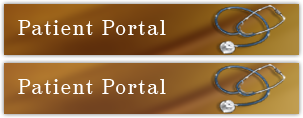In Office Lab & Diabetes Monitoring
The Center for Diabetes Management provide these servicesFinger-Stick Testing
Self-monitoring of blood glucose (SMBG) is necessary if you have diabetes. The best times to test your bloodsugar are:
- before meals to manage your carbohydrate intake
- two hours after meals
- before bed or exercise,/
- when you are ill
- at 3 a.m. at least once a week, if you have Type 1 diabetes
Fasting Blood Sugar
The fasting blood sugar (FBS) value corresponds to the amount of sugar in the blood after eight hours of no food or calories. It is one of the most efficient and economical ways to evaluate someone’s health. The American Diabetes Association recommends that fasting blood sugar levels be used to diagnose diabetes. It is also a way for patients to monitor their diabetes throughout the day and enables them to make good food and medication decisionsHgbA1C
An A1C (also know as Hemoglobin-A1c) test is a measure of average blood glucose levels over the past two to three months. The standard finger stick test provides a current blood glucose level, but the A1C test provides the big picture of average levels over two to three months. It is a better reflection of how your diabetes treatment plan is working overall. A high result generally puts you at risk of complications related to diabetes. Having A1C tested regularly is important to monitor your diabetes.Continuous Glucose Monitoring CGM
Continuous glucose monitoring (CGM) of your blood sugar is one way to better treat your diabetes. This technology will enable your health care team to make better informed decisions and will allow you to be coached based on the entire pattern of your blood glucose rather than just random finger stick alone that only alerts you to a single point in time when you have tested your blood glucose. But with CGM, you’ll see the full pattern of where glucose is heading and how fast it’s getting there. And provide your healthcare provider with insights into how your diet, medication, and daily activities really affect your glucose levels. You can get up to 288 glucose readings per day that will be displayed in a personalized report. This report will identify potential dangerous lows at night and will detect how high your glucose really gets after meals.We have two types of CGM available:
The Dexcom CGM monitors blood glucose for one full week. Medtronic CGM monitors blood glucose for 72 hours. Often times will be covered by insurance.
( please insert a picture of CGM)
Lab Test and Diagnostic Testing
CDM offer lab tests that is recommended by our health team providers.Tips For The Week


